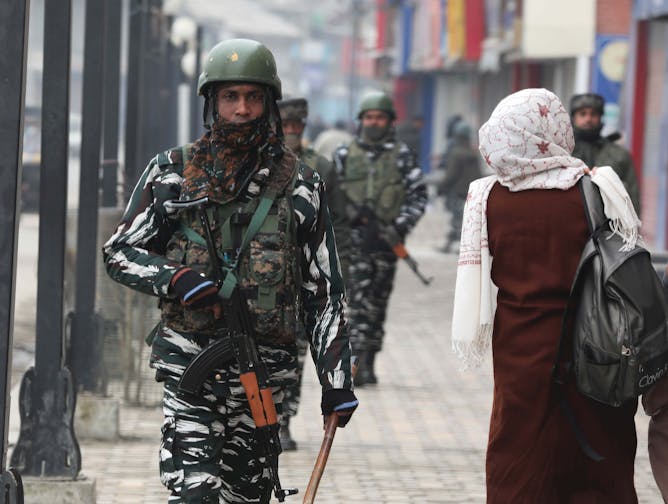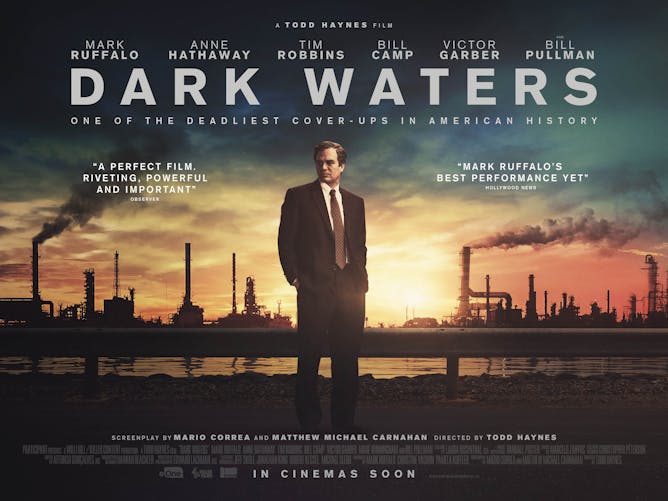|
|
|
Editor's note
|
|
It’s hard not to be gripped by the ongoing coronavirus scare which is generating ever-more apocalyptic headlines as new infected patients crop up daily in different parts of what is beginning to seem an increasingly small world. And “scare” is the right word, writes journalism professor Karin Wahl-Jorgensen, who has spent years researching media coverage of disasters and the fear it can provoke.
While a healthy dose of fear can make us all more vigilant, it’s important that the disproportionate use of associated language such as “killer virus” does not lead to general panic which would be decidedly unhelpful.
Not least for business in China and elsewhere, where sentiment, as well as the very real constraints imposed by quarantines and supply-chain disruption, could take a serious toll on the global economy.
We also look at why Arrokoth, which – at 6.6 billion kilometres from the Sun – is the most distant object ever to be visited by a spacecraft, looks to astronomers like a snowman or a peanut. Meanwhile the dangerous ongoing conflict in Kashmir remains in deadlock – here’s why Donald Trump’s offer of mediation is a good idea.
And film fans can join us for an exclusive screening for Conversation readers of the upcoming blockbuster Dark Waters, starring Mark Ruffalo. The film tells the true story of Rob Bilott, a US corporate lawyer who risks his career to bring justice to a community dangerously exposed to deadly chemicals for decades. The screening will be held in London on the evening of Tuesday February 25th, followed by a Q&A with chemist Mark Lorch, global systems expert James Dyke, science policy adviser Melanie Smallman, and someone from the environmental pollution charity Fidra. Find out how you can get your hands on a pair of tickets here.
|
Jonathan Este
Associate Editor, Arts + Culture Editor
|

|
|
|
|

katherinekycheng via Shutterstock
Karin Wahl-Jorgensen, Cardiff University
Sensationalist media coverage of the novel coronavirus risks spreading fear rather than keeping the public informed.
|

Arrokoth.
Quapan/Flickr
Monica Grady, The Open University
Meet Arrokoth – one of the first generation of solar system objects.
|

Indian paramilitary soldiers patrol the streets of Srinagar, Kashmir in February.
Farooq Khan/EPA
Saloni Kapur, Lancaster University
India has rejected recent offers on mediation over Jammu and Kashmir. But it should think again.
|

Josephine Lethbridge, The Conversation
The screening will include a Q&A with experts hosted by Conversation editor Josephine Lethbridge.
|
Arts + Culture
|
-
Adam Parker, The Open University
Across the Graeco-Roman Empire, the romantically challenged turned to magic to improve their chances
-
Akhona Ndzuta, University of Fort Hare
The passing of music giant Joseph Shabalala rests heavy on South African hearts - he told the story of black migrants within the apartheid system in a way no-one else did - and achieved global fame.
|
|
Health + Medicine
|
-
Keren MacLennan, University of Reading
Early interventions might help protect autistic children from anxiety disorders in adulthood.
-
Samuel Nyman, Bournemouth University
A lot of claims have been made about the benefits of tai chi, but do they all stand up?
-
Marlise Hofer, University of British Columbia; Frances Chen, University of British Columbia
Smelling a romantic partner's clothing is common behaviour, and research shows that it may improve sleep quality, and ease stress levels.
|
|
Environment + Energy
|
-
Laurie Wright, Solent University
All modes of high-speed travel come with a cost to the environment.
-
Krystyna Swiderska, Coventry University
The world’s millions of indigenous people play a critical role in conserving biodiversity.
|
|
Politics + Society
|
-
Alan Shipman, The Open University
The question is: how long will Rishi Sunak last?
-
Blerina Kellezi, Nottingham Trent University
Detainees, held in a perpetual state of powerlessness, try to support each other.
-
Jacob Nyarko, University of Cape Coast
The most popular broadcast medium in Ghana has gone through a politically fuelled evolution that has strengthened it.
|
|
Cities
|
-
Katja Leyendecker, Northumbria University, Newcastle
Radical thinking in Greater Manchester's cycling and walking plan could direct cities away from car-focused infrastructure.
|
|
Science + Technology
|
-
Sarah Leupen, University of Maryland, Baltimore County
You've had your own personal set of fingerprints since before you were born, and they'll be with you throughout your whole life.
-
David Harasti, Southern Cross University; Michael Simpson, University of Sydney; Rebecca L. Morris, University of Melbourne; Ross Coleman, University of Sydney
White's seahorse in Sydney uses seahorse hotels as temporary residence while their natural habitats recover.
-
Blake Richards, McGill University
The knowledge produced in designing and developing artificial neural networks may provide new insights into how our brains work.
|
|
Business + Economy
|
-
Chusu He, Coventry University
Thousands of Chinese producers are at risk of going bust as a result of the outbreak.
|
|
| |
Featured events
|

|
Julian Study Centre Lecture Theatre, University of East Anglia, Norwich, Norfolk, NR4 7TJ, United Kingdom of Great Britain and Northern Ireland — University of East Anglia
|

|
Richmond Building, Portland Street, Portsmouth, Hampshire, PO1 3DE, United Kingdom of Great Britain and Northern Ireland — University of Portsmouth
|

|
Yorkshire Room, JB Morrell Library, Campus West, York, York, YO10 5DD, United Kingdom of Great Britain and Northern Ireland — University of York
|

|
School of the Arts, 19-23 Abercromby Square, Liverpool, L69 7ZG, United Kingdom of Great Britain and Northern Ireland — University of Liverpool
|
|
|
|
| |
| |
| |
| |
| |
|
|
|
|
|
|
|